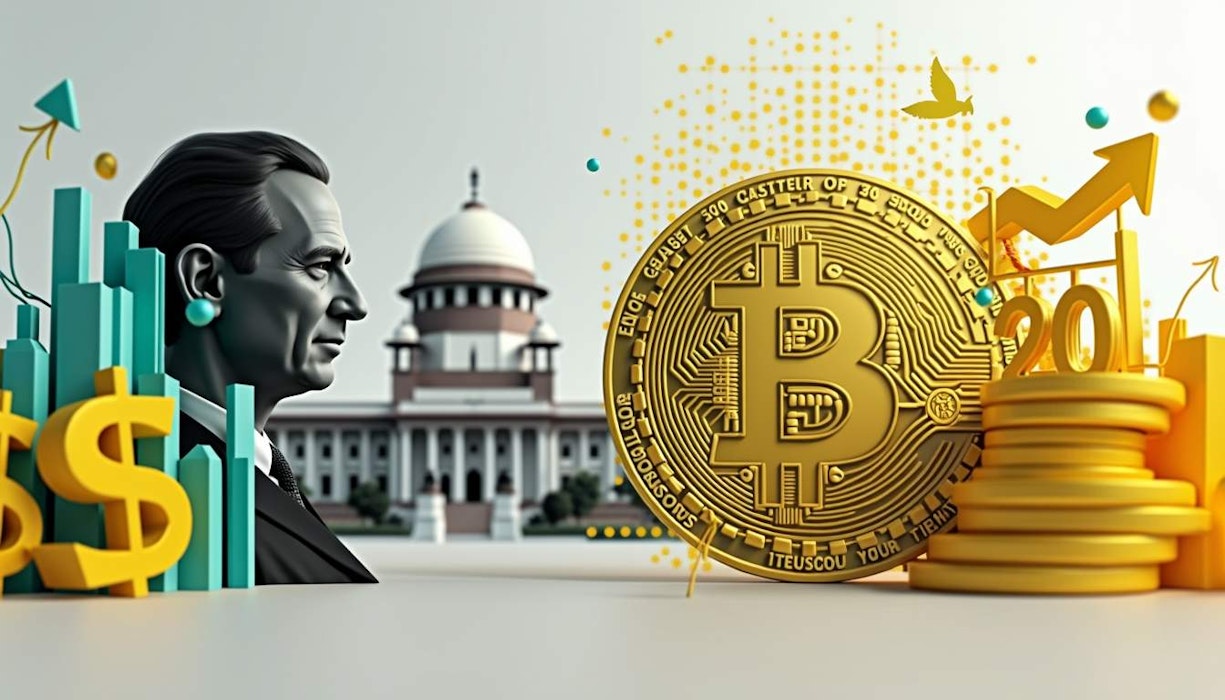What is the National Bitcoin Reserve Proposal?
Q: What is the national Bitcoin reserve proposal all about?
A: The proposal backed by President-elect Donald Trump and Senator Cynthia Lummis advocates for the establishment of a national Bitcoin reserve by the U.S. government. The idea is to hold on to the Bitcoin it has seized, approximately 198,000 BTC worth over $19 billion, and to possibly purchase up to 1 million BTC over five years, retaining this reserve for at least two decades. Proponents argue that this could mitigate inflation risks and potentially decrease national debt as Bitcoin appreciates over time.
How Might a National Bitcoin Reserve Shape Global Crypto Markets?
Q: How could a national Bitcoin reserve impact crypto exchange markets globally?
A: The establishment of a national Bitcoin reserve could have various impacts on global crypto markets:
Institutional Investment and Market Liquidity
A national reserve could attract more institutional investment in Bitcoin, improving its liquidity and long-term stability. A governmental endorsement as a legitimate asset would likely bolster confidence among other investors.
Price Surge and Increased Demand
Already, the announcement of a national Bitcoin reserve has pushed Bitcoin prices to new heights. Proponents claim the reserve could add further upward pressure on prices, with some speculating it could reach $500,000 or even $1 million if other nations follow suit and establish their own reserves.
Global Financial Dynamics
The official recognition of Bitcoin as a U.S. reserve asset could catalyze its acceptance globally, prompting other countries to consider adopting it as an alternative to traditional reserve currencies or gold. The competition among nations to build reserves could greatly elevate Bitcoin’s market cap.
Economic Risks and Volatility
However, Bitcoin's price volatility poses a risk to economic stability. Major fluctuations could impact a country’s foreign reserves and create economic turbulence. Experts caution that using Bitcoin as a reserve asset could be inflationary and may not meet the standard characteristics of reserve assets, such as liquidity and reliability.
How Would Regulatory Changes Alter Crypto Trading in the U.S.?
Q: What regulatory changes might occur in the U.S. regarding crypto trading as a result of the reserve?
A: The establishment of a national Bitcoin reserve would likely necessitate substantial regulatory changes in how crypto trading operates in the U.S.:
Legislative Support and Financial Security
The proposal is backed by U.S. Senator Cynthia Lummis through her BITCOIN Act, which seeks to have the Treasury and Federal Reserve acquire and hold significant amounts of Bitcoin. It also aims to affirm the self-custody rights of private Bitcoin holders, addressing concerns about potential government overreach.
Complexity of Regulation
Setting up a Bitcoin reserve could complicate regulation, requiring coordination among federal agencies like the CFTC and SEC. This would introduce additional layers to the regulation of crypto activities.
Challenges to Current Financial Structures
Creating a Bitcoin reserve could challenge the existing financial regulations that govern institutions like the FDIC. It would position the government as a speculator in a volatile market, which is markedly different than managing traditional reserve assets.
How Can We Assess the Proposal's Intent?
Q: What can we infer about whether the proposal is a strategic economic initiative or political maneuvering?
A: The proposal appears to be a mixture of both, bearing elements of both economic strategy and political maneuvering.
Economic Argument
- It’s presented as a move to bolster economic stability and resilience. The limited supply of Bitcoin and its decentralized structure are portrayed as beneficial against inflation and market volatility.
- The strategy to acquire up to 1 million BTC is designed to mitigate inflation risk and potentially lower national debt as Bitcoin's value rises.
Political Underpinnings
- The proposal has received political support, particularly from Trump and Lummis, suggesting backing from influential figures.
- The timing of the announcement aligns with Trump's victory, indicating a political context.
General Sentiment
- Reactions are mixed, with some citing significant risks such as market volatility and taxpayer exposure, indicating the proposal is not universally accepted as purely strategic.
What Can Other Countries Teach Us?
Q: What can we learn from other countries that have incorporated cryptocurrencies into their national reserves?
A: The experiences of countries that have adopted cryptocurrencies as part of their national reserves offer various insights:
Diversification of Assets
Countries like the U.S., Brazil, Poland, and Russia are turning to Bitcoin as a means to diversify their reserves and bolster economic resilience.
Need for Clear Regulations
Clear regulatory frameworks are crucial for integrating Bitcoin into reserves. The U.S. is considering introducing a "Bitcoin Law" to facilitate this.
Geopolitical Considerations
The adoption of Bitcoin as a reserve asset can have geopolitical ramifications. It could prompt a race between countries to accumulate Bitcoin, significantly impacting its market dynamics.
Technological Readiness
Countries must be equipped with the technological and infrastructural capabilities necessary to manage crypto assets effectively.
Comparison with Traditional Assets
Bitcoin is often compared to gold, but its decentralized nature offers unique protections against various financial threats.
Risk Management
While cryptocurrencies may offer potential advantages, they also bring substantial risks that necessitate careful management to safeguard reserves.
Investor Confidence
Recognition of Bitcoin as a strategic reserve asset can enhance institutional and retail investor confidence, potentially driving up demand and prices.
Financial Inclusion
Adoption of crypto assets can also improve financial inclusion, lower remittance costs, and bolster payment resilience, especially in regions like Latin America.
